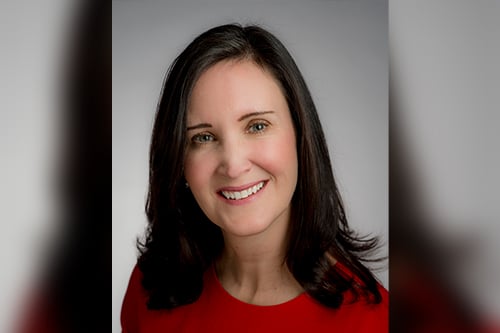

Taking claims in-house has helped boost customer trust, Travelers CEO and president Heather Masterson has said.
Owning the end-to-end claims experience should be a part of a carrier’s best practices and discipline, according to Masterson, who spoke at an insurance broker event.
“We must ensure that we have excellent training and consistent training across all of our claims professionals,” she said.
As a result of the destruction caused by Hurricane Sandy in the US in 2012, the team at Travelers were compelled to rethink its claims adjusting protocol in the wake of that event.
“It was a very common practice at that time for independent adjusters to be used as flex to extend your claims at work, and we were very much a part of that system,” Masterson said.
“What we found is that we could not do our claimants justice and service and turnaround their needs in a timely fashion. As a result, we took 100% of that in house.”
By taking over the claims process fully, a carrier can have control of the experience through education, style and approach, according to Masterson.
Over the past few years, the industry has struggled to manage claims and deliver a consistent and favourable claims experience. “At Travelers Canada, when we take a look at our customer survey satisfaction scores, we haven't seen a dip,” the CEO said.
For example, in the aftermath of Hurricane Fiona, Travelers saw its customer approval ratings increase by over ten points, showcasing how having a robust plan in place to deal with climate events and changing weather can ultimately result in greater consumer trust.
During a CEO talk at this year’s Insurance Brokers Association of Ontario Convention in Toronto, Masterson spoke about why technology can help augment the claims experience and why certain challenges to the Canadian market persist.
A significant pillar of Masterson’s notion of maintaining best practices and principles during the claims experience is tapping into the potential of technology to make for a more accurate and better outcome for customers.
The CEO pointed to an aerial imaging technology that Travelers employs to get detailed and actionable information about the source of a loss and its impact on an insured.
“We have a system that monitors weather patterns and events in across North America 24/7 365 days of the year,” she said.
“We first do flyovers and take geospatial imagery of properties before the weather pattern occurs to that understand where our insureds are located. Once the weather pattern goes through, we do another flyover, and we can understand what type of damage has taken place.”
This is particularly useful if the area is blocked off to humans due to extensive damages, insurers are still able to analyze the impact of a storm without having to be physically present.
“With that data and knowledge, we reach out to our brokers to get in touch with their customers to give them line of sight of what's happened and help them with the claims process,” Masterson added.
“It really does make a material difference, especially when people’s livelihoods or homes are severely affected.”
“The broker and customer experience tends to get better and better when a company is building that infrastructure for all of its brokers,” Masterson said.
“The way that we interact and engage is based on the quality of the relationship and the how it's being reciprocated, so we can mutually grow together.”
Elsewhere during the CEO panel, the topic of economics was brought up, especially in comparison to a similar talk that was held at the convention’s 2022 edition.
“We’re not through the challenges that we were facing last year,” Masterson said.
“There's certainly a lot of headwinds that we're facing now, and there's potentially more to come.”
Canada’s rate of inflation has accelerated more than what was expected, which means that the cost of living, goods and services is still affecting many Canadians.
“Inflation creates volatility,” Masterson said.
“And that's something that we're going to have to watch because we're very linked to the economy. When we see rising inflation, we absolutely see it impact our loss costs. For example, the cost of goods has increased about 30% from their pre-pandemic amounts. This correlates to increased loss costs, when you consider the supply chain, tight labour market and repairs.”
Masterson said that compared to four years ago, loss costs have risen more than 30% overall, causing insurance products and carriers to try and stay apace with these troubling changes.
Insights like this are particularly important to share with the broker community, since they are the frontline professionals that can educate a client on the symptoms of rising premiums while also extolling insurance’s inherent value in society.
“I think we do a tremendous job telling our story within the industry,” Masterson said.
“But I wonder if we do an excellent job of telling that story externally. And I think it's something that we all need to come together to be very resilient and deliberate in terms of our messaging, and make sure that we're working together to amplify the importance of insurance.”
